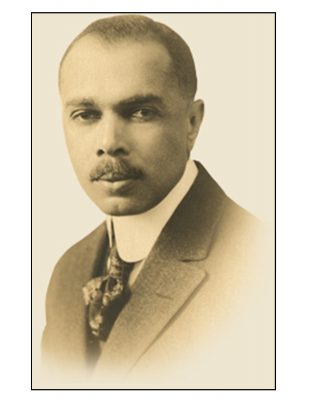Commemorating James Weldon Johnson

Today, on June 25th
we are invited to commemorate
James Weldon Johnson – Poet, 1938
Evening Prayer – 5:00 PM
Holy Eucharist – 6:00 PM

James Weldon Johnson (June 17, 1871 – June 26, 1938) was an American author, politician, diplomat, critic, journalist, poet, anthologist, educator, lawyer, songwriter, and early civil rights activist. Johnson is remembered best for his writing, which includes novels, poems, and collections of folklore. He was also one of the first African-American professors at New York University. Later in life he was a professor of creative literature and writing at Fisk University.
He was born in Jacksonville, Florida, into a middle-class black family of Bahamian ancestry. He graduated from Atlanta University and became the first African-American admitted to the Florida bar. From 1906 to 1913 he was Consul in Venezuela and then Nicaragua; during this period he wrote the fictional Autobiography of an Ex-Colored Man.
In 1913 he returned to the U. S., lived in New York, and engaged initially in songwriting and the theater with his brother, but then became involved in political activism.
In the fall of 1916, because Johnson excelled as a reconciler of differences among those whose ideological agendas seemed to preclude unified, cooperative action, he was asked to become the national organizer for the National Association for the Advancement of Colored People (NAACP). Opposing race riots in northern cities and the lynchings that pervaded the South during and immediately after the end of World War I, Johnson engaged the NAACP in mass tactics, such as a silent protest parade down New York’s Fifth Avenue in which ten thousand African Americans took part on July 28, 1917. In 1920 Johnson was elected to manage the NAACP, the first African American to hold this position. While serving the NAACP from 1914 through 1930 Johnson started as an organizer and eventually became the first black male secretary in the organization’s history.
Throughout the 1920s he was one of the major inspirations and promoters of the Harlem Renaissance trying to refute condescending white criticism and helping young black authors to get published. While serving in the NAACP Johnson was involved in sparking the drive behind the Dyer Anti-Lynching Bill of 1921.
By the 1930’s, he had tired of politics, and “retired” as Professor of Creative Literature and Writing at Fisk University. He died in an automobile accident in Maine in 1938.
Please join us as you are able before the altar of Christ Church Woodbury
Our parish plan of maintaining safe practices and social distancing guidelines when inviting corporate worship has been approve by our Diocese and may be accessed HERE.
Fr. Brian K. Burgess

